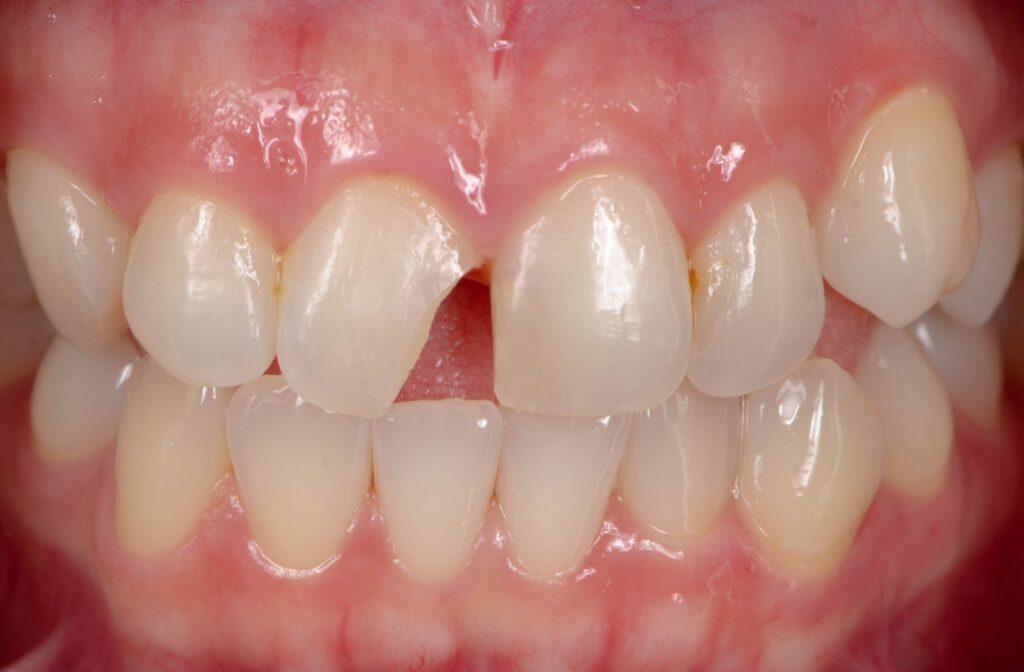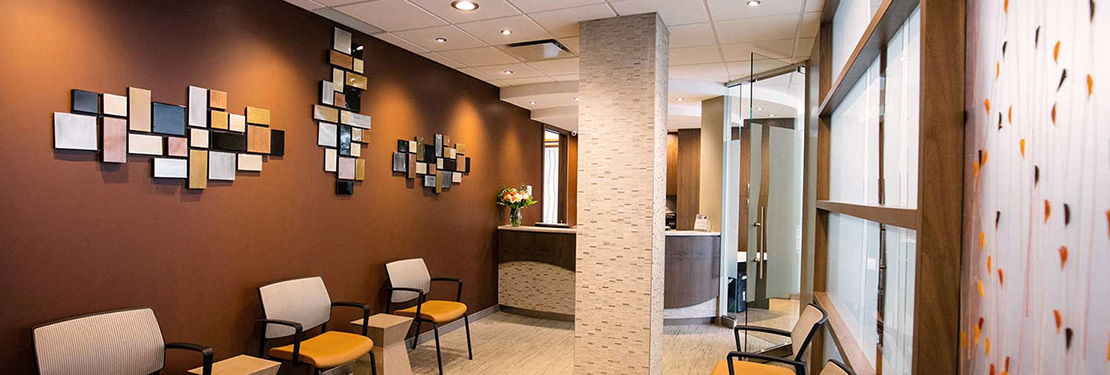Whether it happens from biting into something hard or from an unexpected fall, chipping your teeth can be a startling experience. The good news is that a chipped tooth is a common dental emergency with several straightforward solutions.
You have options available to restore your tooth’s shape and function. The fix for a chipped tooth depends on the extent of the damage, with options that can range from simple bonding to dental crowns. A dental professional can help you find the right path for your smile.
What Causes a Chipped Tooth?
A chipped tooth can happen to anyone. While tooth enamel is the strongest substance in your body, it has its limits. A chip or break can occur for several reasons.
- Bite on something hard like ice or candy
- Experience a fall or a blow to the face
- Have an accident while you play sports
- Have tooth decay that weakens the tooth
What to Do Immediately After You Chip a Tooth
If you chip a tooth, it’s a good idea to see your dentist promptly. A quick response and emergency dental care can help prevent more damage or infection. While you wait for your appointment, here are a few steps you can take at home.
- Rinse your mouth with salt water.
- Take an over-the-counter pain reliever if you feel discomfort.
- Cover any sharp edges with sugarless gum or wax paraffin.
- Eat soft foods & avoid biting using the broken tooth.
Why You Should Not Leave a Chipped Tooth
Even a small chip can have sharp edges that might cut your tongue or cheek. A chip can also weaken the tooth, which makes it more likely to break further. Bacteria can get into the chip and may lead to decay or infection over time.
Dental Options to Repair Your Tooth
The right repair for your tooth depends on the size of the chip and where it is in your mouth. Your dentist will examine the tooth and suggest a suitable path forward. There are several common dental restorations available to restore your tooth’s appearance and strength.
Dental Bonding for Small Chips
For minor chips, especially on front teeth, dental bonding is a common solution. A dentist applies a tooth-coloured composite resin to the tooth and shapes it to match. The material is then hardened with a special light, and the whole procedure is often done in a single visit.
Dental Veneers for Front Teeth
A veneer is a thin shell of porcelain or composite material that covers the front of a tooth. It’s a good option for a chipped front tooth because it restores a whole and healthy look. The process usually takes a couple of visits to complete.
Dental Crowns for Large Breaks
If a large piece of the tooth breaks off, a dental crown—or cap—may be needed. The dentist files down the remaining part of the tooth and covers it with a crown. This protects the tooth from more damage and improves its appearance.
Root Canal Therapy for Deep Chips
A chip that exposes the tooth’s inner pulp—where the nerves and blood vessels are—can be painful. In these cases, root canal therapy removes the damaged pulp, cleans the area, and seals it. After a root canal, the tooth is often covered with a crown for protection.
Dental Implants for Severe Damage
In some cases, a chip or crack is too severe to save the tooth. Your dentist might suggest removing the remaining tooth and replacing it with a dental implant. This involves placing a metal post in your jawbone and attaching a replacement tooth.
Your Dental Visit & the Repair Process
When you visit a dentist in SW Calgary for a chipped tooth, the first step is an examination of your oral health. Your dentist will look at the tooth and may take X-rays to check the tooth’s root and the bone around it. From there, you can discuss the different repair options together.
A Single-Day Solution
Yes, some repairs can be done in a single appointment. Dental bonding for small chips is a quick procedure that usually takes less than an hour. Some dental offices also have technology to make and place a permanent crown on the same day.
Repair Costs & Future Protection
The cost to repair a chipped tooth can vary. It depends on the type of repair needed and the extent of the damage. A simple bonding procedure will be different from a more involved treatment like a crown or dental implant.
Dental Insurance & Your Repair
Many dental insurance plans, including programs like the Canadian Dental Care Plan, help cover the cost of some restorative procedures like fillings, crowns, and bonding. The amount of coverage depends on your specific plan. It’s a good idea to check with your insurance provider to understand what your benefits include.

Protect Your Teeth from Chips & Cracks
While you can’t prevent every accident, you can take steps to reduce your risk of chipping a tooth. Simple habits can help keep your smile whole.
- Avoid chewing on hard foods like ice, popcorn kernels, and hard candy.
- Wear a custom mouthguard when you play contact sports.
- Do not use your teeth to open packages or bottles.
A chipped tooth doesn’t have to be a long-term problem for your smile. With modern dental care, you can find a comfortable and effective solution. The most important step is to have it looked at by a professional. At Ti Dental, we provide a warm and judgment-free environment to discuss your dental health. If you have a chipped tooth, contact us to request an appointment. We’re here to help you explore your options and restore your smile.








